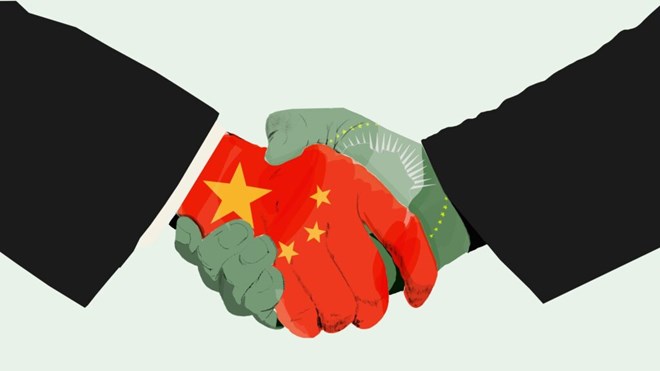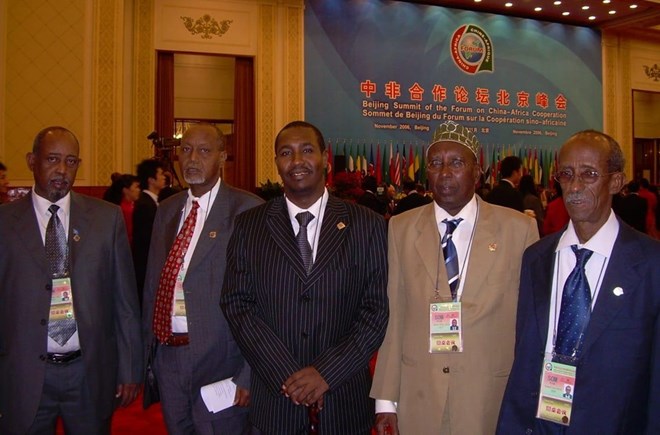Saturday August 17, 2024
By Amb. Mohammed Ahmed Awil

The Forum on China-Africa Cooperation (FOCAC) represents the growing strategic partnership between China and African nations, aimed at fostering mutual economic growth, development, and international influence.
INTRODUCING FOCAC
Africa is the biggest beneficiary of China’s emerging power role in its provision of aid and development assistance. This made it prudent to elevate China-Africa relations to a more Comprehensive Strategic Partnership to signify significant deepening and broadening of their relations beyond traditional partnership. Such partnering aims at enhancing collaboration in trade and investment, defence and security cooperation, technological sharing, cultural exchanges etc. Therefore, China and African countries opted to establish the Forum on China-Africa Cooperation (FOCAC) as an official channel through which the People’s Republic of China cooperates with African Countries. The forum provides shared idea premises for future strengthening of the China-Africa strategic partnership thus it is an integrated framework to govern Chinese-African Countries relations to promote their diplomatic, trade, security and investment relations.
Ambassador Awil in 2006 Beijing FOCAC Summit
It was founded in 2000 and acts as the primary multi-lateral coordination channel through which China relates with African States. Its establishment was a great milestone in both diplomatic history and international politics of China. The founding was based on many factors including the long-time bilateral friendship, fast development of China-Africa relations in the 1990s, economic globalization, value attached to the relations by African diplomats, and the international recognition of the concepts held by the Chinese government. Its founding was through adoption of the “Beijing Declaration” and the “Programme for China–Africa Cooperation in Economic and Social Development” by China and Africa.
Since 2018 member states considered it as the Belt and Road Initiative (BRI) cooperation platform since it aims at aligning BRI with the African Union Agenda 2063 which outlines continental socio-economic transformation strategic framework for the next 50 years. Under the agenda, China-Africa cooperation plan prioritizes trade and economic integration facilitation through improved infrastructure connectivity in Africa and China-African Countries’ trade facilitation enhancement, financial integration and policy coordination to harmonize and mutually reinforce development strategies. This has remarkably impacted trade and investment cooperation between China and Africa with witnessed increased trade volumes resulting in China being the largest trading partner of Africa and continuous China-Africa economic relations’ evolution.

Ambassador Awil in 2006 Beijing FOCAC Summit
Member states established this forum to achieve the following objectives; equal consultation, enhancing understanding, expanding consensus, strengthening friendship and promoting cooperation through a consultation mechanism. The progress made towards achievement of a project’s objectives and recommended adjustments to its strategy is assessed through its consultation channel prescribed in its Program for China-Africa Cooperation in Economic and Social Development and set-up channels to regularly evaluate implementation follow-up actions as adopted during its 2000 FOCAC Ministerial Conference in Beijing, China. The forum implements its activities by drawing a three-year action plan after each ministerial meeting when China extends loans, grants and export credits to spur their relations. Such follow-up channels are built at three levels; the Ministerial Conference held after every three years, yearly senior officials cum their Preparatory meeting for the Ministerial Conference and at least twice yearly African Diplomatic Corps in China and the Secretariat of the Chinese consultations meeting.
FOCAC functions as a channel through which China and Africa communicate and manifest their relations in a formal document. It aims at enhancing China Africa cooperation and mutual benefits in addition to increasing their political and economic influence at the global level. This was influenced by previous historical time periods that resulted in strengthening their political and economic associations. For example, China and African countries experience common threats from Western interference in their domestic affairs. Similarly, China-Africa compatibility also arose after the Cold War when China emerged as a great power while Africa’s financial aid receipts from the West diminished: Africa has abundant natural resource deposits and China has financial capability.
Therefore, FOCAC is a significant point of departure that allows one to understand China-Africa current strategic partnership. Its main goal is based on greater cooperation and equality between China and African Countries. It is an ideal institution that coordinates China-Africa relations. The relations are becoming more diversified through various players from both China and Africa. Such players include local, provincial and national governments, individuals, multinationals, workers and entrepreneurs who are moved to the global stage and functioning under the FOCAC framework. Thus, the Chinese relations present Africa with possible financial gain and strengthen marginalized Africa’s institutions such as AU and NEPAD in international affairs. Africa can now voice its concerns by virtue of its association in FOCAC.
Amb. Mohammed Ahmed Awil is the former Federal Republic of Somalia Ambassador Extraordinary and Plenipotentiary to the People’s Republic of China